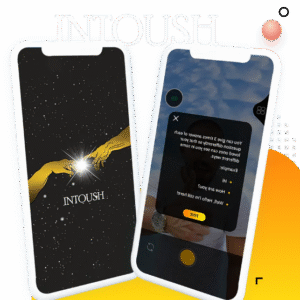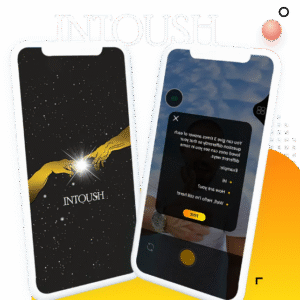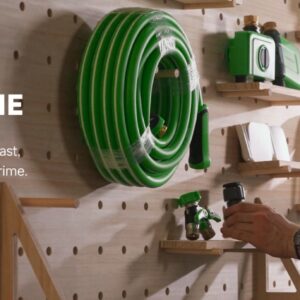Interviews can be daunting. The pressure to make a strong first impression, answer tricky questions, and demonstrate your value can leave even the most qualified candidates feeling nervous. Yet, with the right strategies and mindset, anyone can transform this anxiety into confidence and approach interviews with clarity and purpose. At VProPle, we understand that preparation and self-awareness are key to excelling in interviews. This article provides actionable, expert-backed advice to help you move from nervousness to confidence and give your best performance.
Understanding the Root of Interview Anxiety
Feeling nervous before an interview is completely normal. The fear of judgment, the uncertainty of questions, and the high stakes of landing a job can trigger stress. Recognizing these feelings is the first step to overcoming them. Nervousness often stems from two main sources: lack of preparation and fear of the unknown.
Preparation reduces uncertainty. When you know what to expect and have rehearsed your responses, your confidence naturally increases. Similarly, reframing fear into excitement can shift your mindset from one of anxiety to one of opportunity. Instead of thinking, “What if I fail?” consider, “This is my chance to show what I can do.” Small mindset adjustments like this can dramatically reduce stress levels before an interview.
Research and Preparation: Your Best Weapons
One of the most effective ways to combat interview anxiety is preparation. Preparation involves multiple layers: researching the company, understanding the role, and practicing answers to common questions.
1. Know the Company: Study the company’s mission, values, culture, and recent developments. Understanding what drives the organization allows you to tailor your answers to align with their priorities, demonstrating that you are not just a candidate, but a well-informed and invested professional.
2. Understand the Role: Review the job description carefully and identify the skills and qualifications required. Think about your experiences and achievements that directly relate to these requirements. This approach allows you to provide specific examples during the interview, making your responses more compelling.
3. Practice Common Questions: While you cannot predict every question, there are common themes such as “Tell me about yourself,” “What are your strengths and weaknesses?” and “Why should we hire you?” Practicing structured, concise answers will increase your confidence and reduce the likelihood of freezing under pressure.
4. Prepare Questions for the Interviewer: Interviews are a two-way street. Asking insightful questions shows your interest in the company and helps you evaluate if the role is the right fit. Avoid generic questions like “What do you do here?” and instead ask about growth opportunities, team dynamics, or company strategy.
Developing Your Personal Brand
Confidence in interviews is not just about answering questions correctly; it’s about presenting yourself as a credible and professional individual. This involves developing a personal brand—how you communicate your skills, values, and uniqueness.
1. Professional Appearance: Dress appropriately for the role and industry. First impressions matter, and your attire can reflect your seriousness and professionalism.
2. Body Language: Non-verbal cues can convey confidence more than words. Maintain eye contact, sit upright, and avoid fidgeting. A firm handshake at the beginning and end of the interview leaves a lasting impression.
3. Clear Communication: Speak clearly, at a moderate pace, and avoid filler words like “um” and “like.” Structured responses show that you are composed and thoughtful.
4. Showcase Achievements: Use the STAR method (Situation, Task, Action, Result) to provide concrete examples of your accomplishments. This demonstrates not only your skills but also your ability to solve problems effectively.
Expert Tips from an Interview Expert
One of the most valuable ways to boost your interview confidence is to learn from those who have years of experience guiding candidates through the process. An interview expert emphasizes that preparation and mindset are inseparable components of success.
1. Embrace Mock Interviews: Conducting mock interviews with friends, mentors, or career coaches helps simulate the real experience. This practice allows you to refine your answers, receive feedback, and identify areas for improvement.
2. Focus on Strengths, Not Weaknesses: While it is important to acknowledge areas for growth, interviews should highlight what you bring to the table. Frame your responses to show adaptability and learning, but emphasize achievements and skills that set you apart.
3. Manage Stress with Breathing Techniques: Deep breathing before and during an interview can help reduce physiological signs of stress. Practice inhaling for four counts, holding for four, and exhaling for four to calm nerves and maintain composure.
4. Storytelling Matters: An interview is an opportunity to narrate your professional journey. Share stories that illustrate your skills, values, and problem-solving abilities. Well-told stories are memorable and make a stronger impression than generic answers.
5. Confidence is Contagious: Even if you feel nervous, displaying confidence through posture, tone, and energy can influence the interviewer’s perception. Acting with confidence often leads to genuine confidence over time.
Handling Difficult Questions
Every interview will have challenging questions that test your knowledge, problem-solving abilities, or character. Handling these questions effectively can be a game-changer.
1. Pause Before Answering: Take a moment to think before responding. This shows composure and prevents you from giving rushed or incomplete answers.
2. Clarify When Needed: If a question is unclear, it’s acceptable to ask for clarification. This demonstrates that you are thoughtful and seek understanding rather than guessing.
3. Be Honest: Honesty is always preferable to fabrication. If you don’t know an answer, acknowledge it and explain how you would approach finding a solution. This demonstrates integrity and problem-solving skills.
4. Bridge to Strengths: When answering tough questions, try to link your response to your strengths or experiences. For example, if asked about a failure, explain what you learned and how it improved your performance.
The Role of Mindset and Visualization
Confidence in interviews is deeply linked to mindset. Visualization is a powerful technique where you mentally rehearse success. Picture yourself walking into the interview, answering questions confidently, and leaving a positive impression. This mental practice prepares your mind and reduces anxiety on the actual day.
Positive self-talk also reinforces confidence. Replace negative thoughts like “I might fail” with affirmations such as “I am prepared, capable, and ready for this opportunity.” Consistent practice of visualization and positive affirmations can significantly improve your performance.
Post-Interview Follow-Up
The interview doesn’t end when you leave the room. Following up demonstrates professionalism and reinforces a positive impression. Send a concise, polite thank-you email within 24 hours. Mention specific points from the conversation, express appreciation for their time, and reiterate your interest in the role. This small gesture can distinguish you from other candidates and leave a lasting impression.
Building Long-Term Interview Confidence
Becoming confident in interviews is a journey. Each interview is an opportunity to learn, improve, and refine your approach. Maintaining a growth mindset, seeking feedback, and continuously enhancing your skills are essential for long-term success.
At VProPle, we believe that anyone can master interviews with preparation, practice, and the right guidance. Confidence is cultivated, not innate, and with persistent effort, you can transform nervousness into poise and professionalism.
Conclusion
Interviews no longer need to be a source of dread. By understanding the roots of your anxiety, preparing thoroughly, developing a strong personal brand, and applying expert strategies, you can navigate any interview with confidence. Remember, even small adjustments in mindset and preparation can have a profound impact on your performance. With the guidance of seasoned professionals and a commitment to growth, you can move from nervous to confident and make every interview an opportunity to shine.
At VProPle, we are dedicated to helping you achieve this transformation and unlock your full potential in every professional encounter. Your next interview isn’t just a test—it’s a chance to showcase your skills, professionalism, and unique value to the world.




